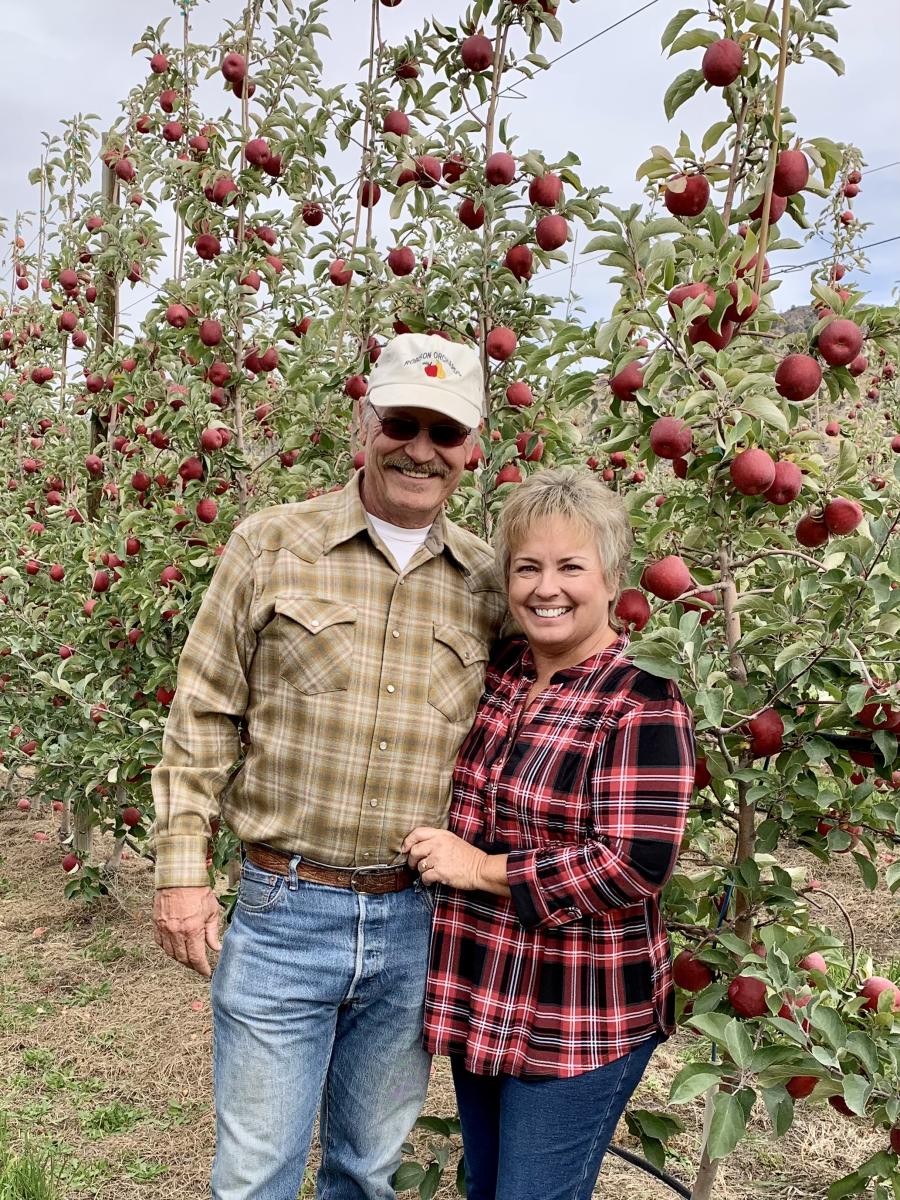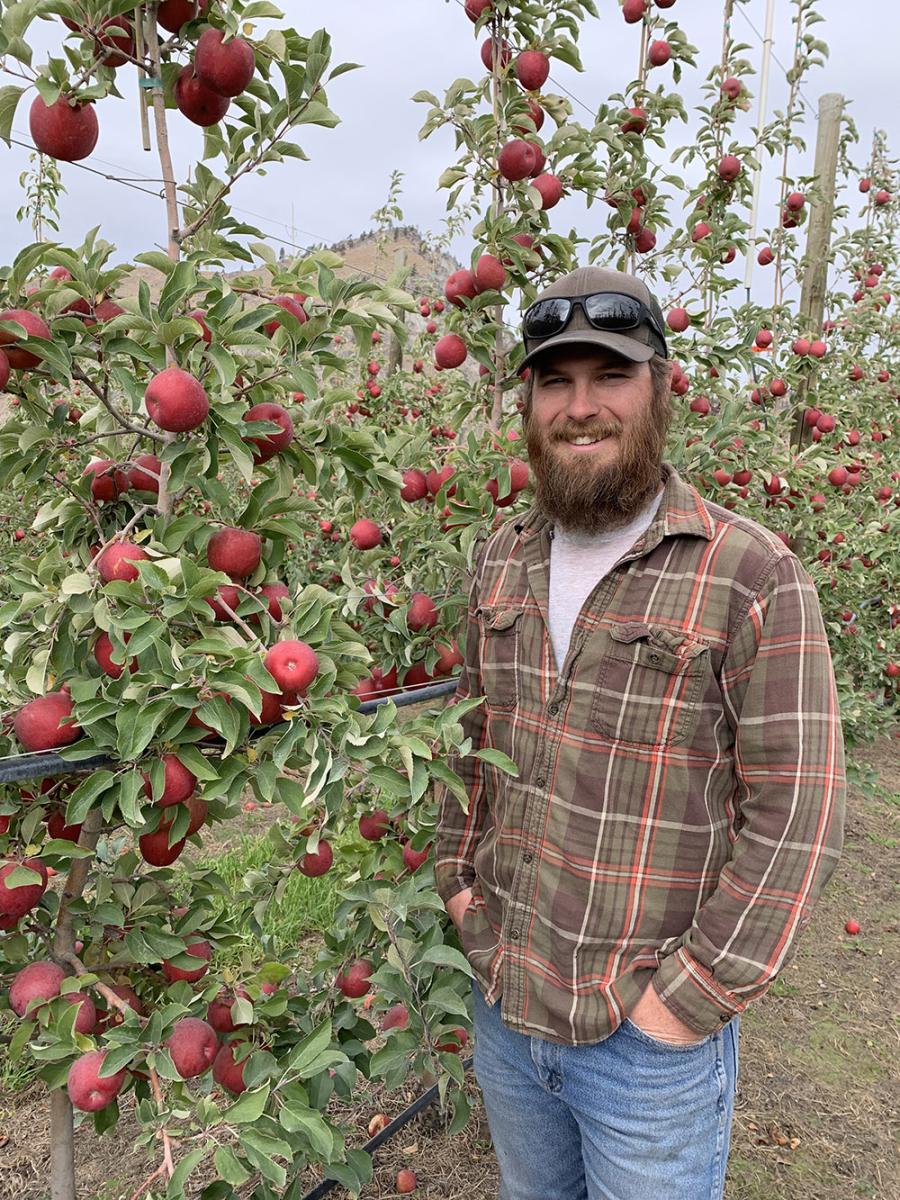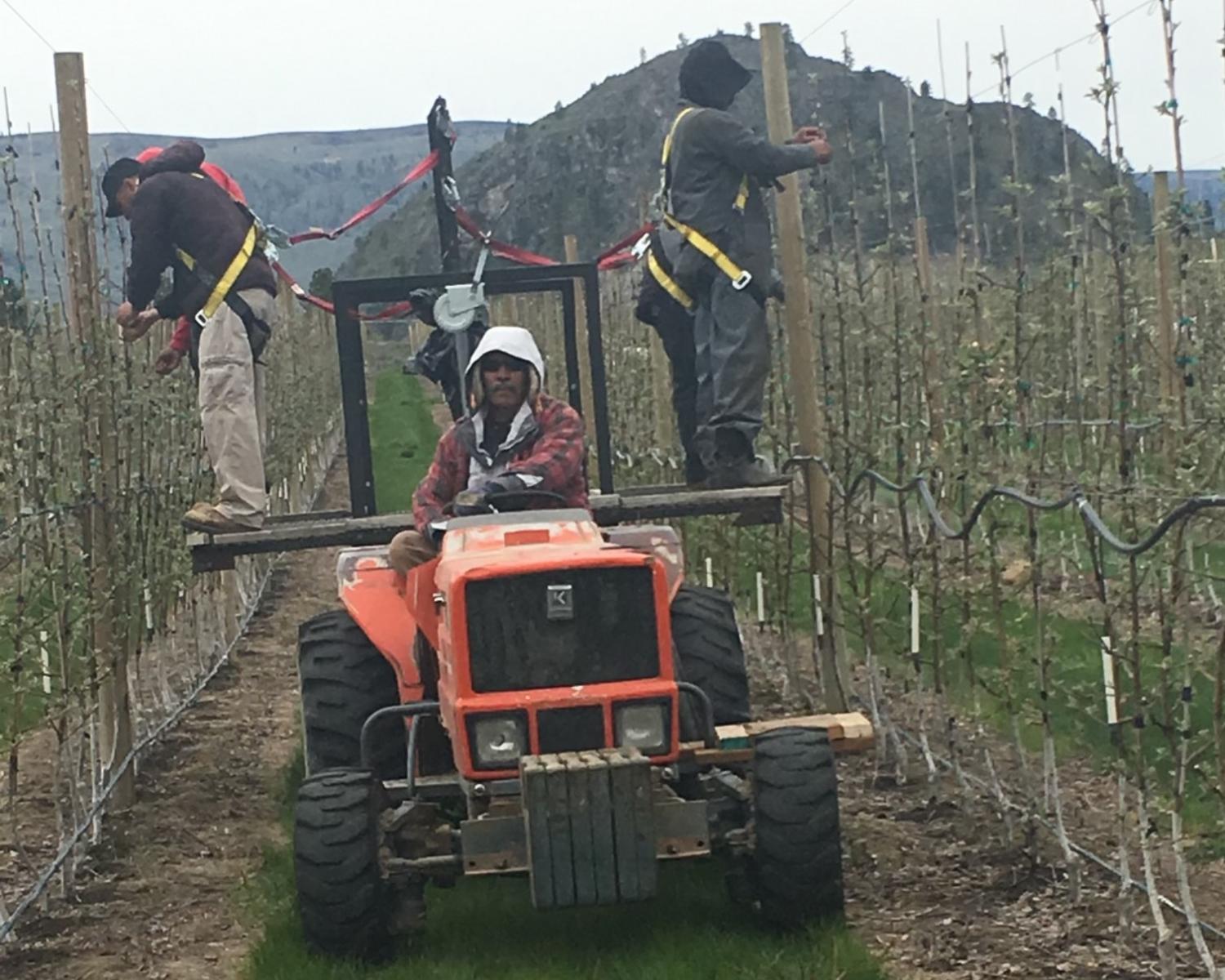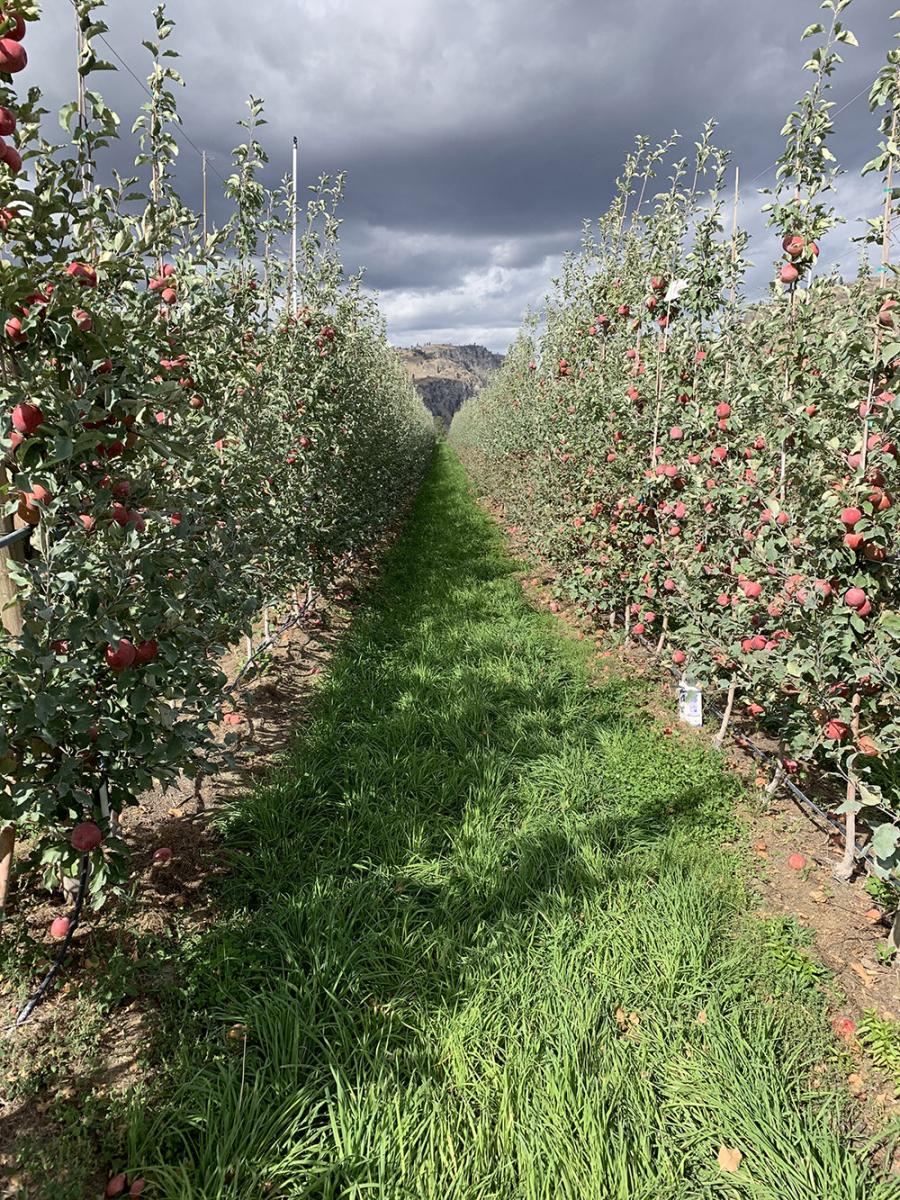The World Loves Apple Farmers to the Core

For many American farms, the apple doesn’t fall too far from the tree. The Robison and Stennes family orchards combined equal more than 200 years of growing apples in Washington.
The Robison family has been growing apples in Chelan, Washington since the 1950s. Today, Jake – the fourth generation of the Robison family – lives on the early-19th century plot that was used to grow some of the earliest apples to be harvested in Washington. “It’s fascinating that the land we are farming today has been used for apples since nearly the beginning of apple farming in the state of Washington – a unique piece of history,” said Jake Robison.
The Stennes family has been growing apples in Pateros, Washington, for more than 130 years, and it continues to modernize its planting, crop management, and harvesting practices. “We’re using self-propelled worker platforms for more efficient work, using robotic harvesting prototypes. Plus, we just purchased our first electric and fully autonomous tractors,” Mark Stennes told FAS. Furthermore, the Stennes orchards have several hundred acres of certified organic production methods and practice Integrated Pest Management to minimize pesticide usage.
The Pacific Northwest microclimate has enabled growers to experiment with this specialty crop. Robison Orchards produce a wide assortment of apple varieties. “We see Granny Smith, Honey Crisp, Cosmic Crisp, and other varieties as excellent options of high-quality apples for foreign markets,” said Dave Robison. “We just got to get them there.”
Both family farms view the recent trade win of India reopening its market to U.S. apples as beneficial for apple farmers across Washington. The Washington Apple Commission (WAC) and FAS India worked together to regain market access for American apple growers. After retaliatory tariffs were lifted last summer, $10.8 million of U.S. apples were exported to India. This had an almost immediate impact for American apple growers; the market in India opened at the beginning of apple-picking season up in the Pacific Northwest.
“Since the tariffs were imposed, other apple origins such as Turkey, Poland, and Iran, took control of the Indian market share, dropping the market share for Washington growers from 53 percent to less than 1 percent in 4 years,” Mark shared with FAS after traveling to India with the WAC in December. “Now that the tariff has been removed, we’ve seen Washington gain back some of the market share that was lost. India is now our fourth largest export market.”
USDA is committed to strengthening U.S. exports of apples and other specialty crops. In 2023, specialty crop exports totaled $24.6 billion. FAS is part of the Specialty Crop Competitiveness Initiative (SCCI), which identifies foreign market access and improves domestic production and processing practices.
Growing and exporting Washington apples is a prime example of the future-facing American agriculture USDA is working with farmers to achieve. An example of this is FAS’s recently announced Assisting Specialty Crops Exports (ASCE) initiative, which will help expand specialty crop exports. ASCE investments will enable the specialty crops industry to address the many non-tariff barriers it faces when opening or expanding export markets.
Farmers are the Apple of our Eye




